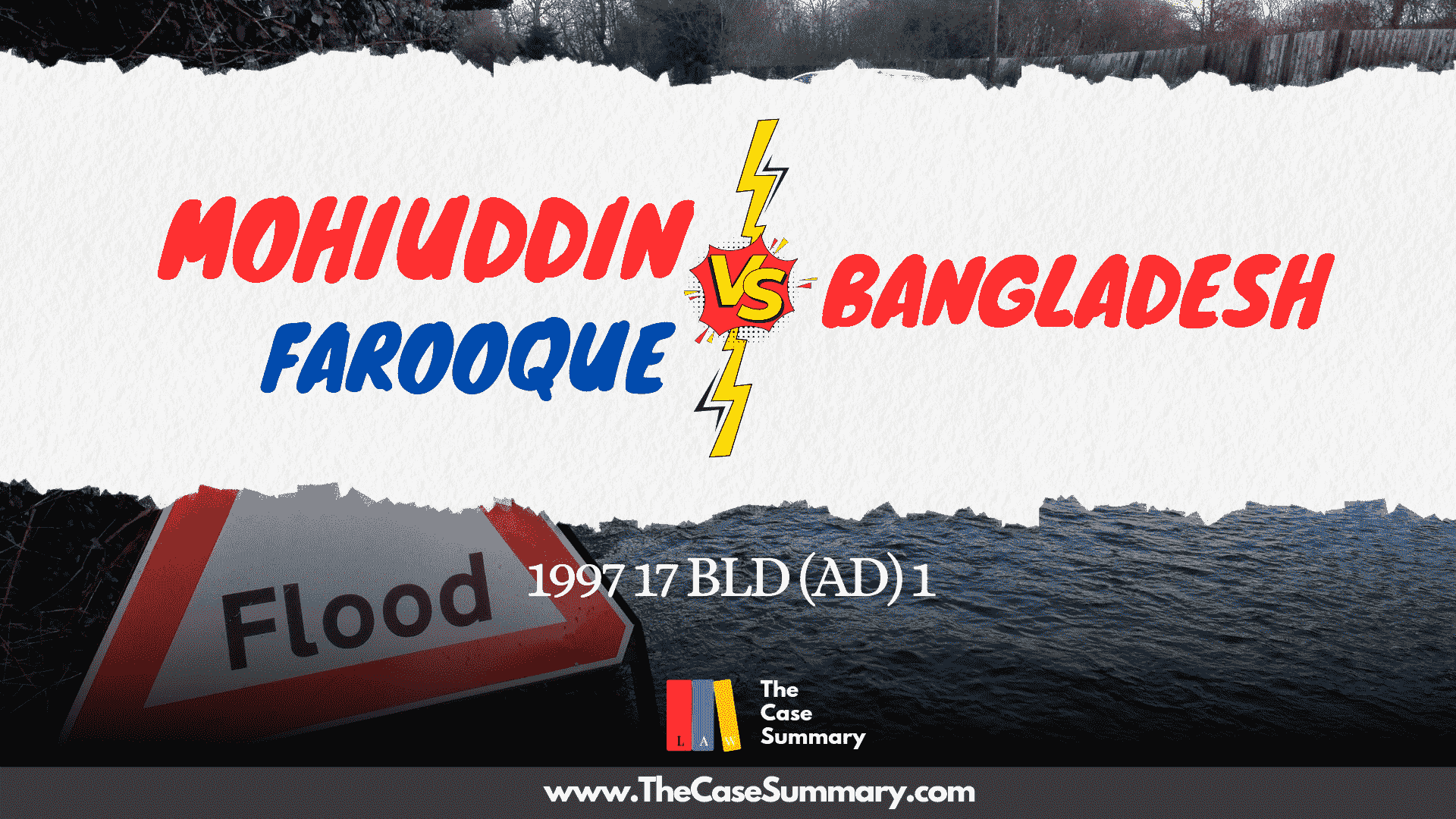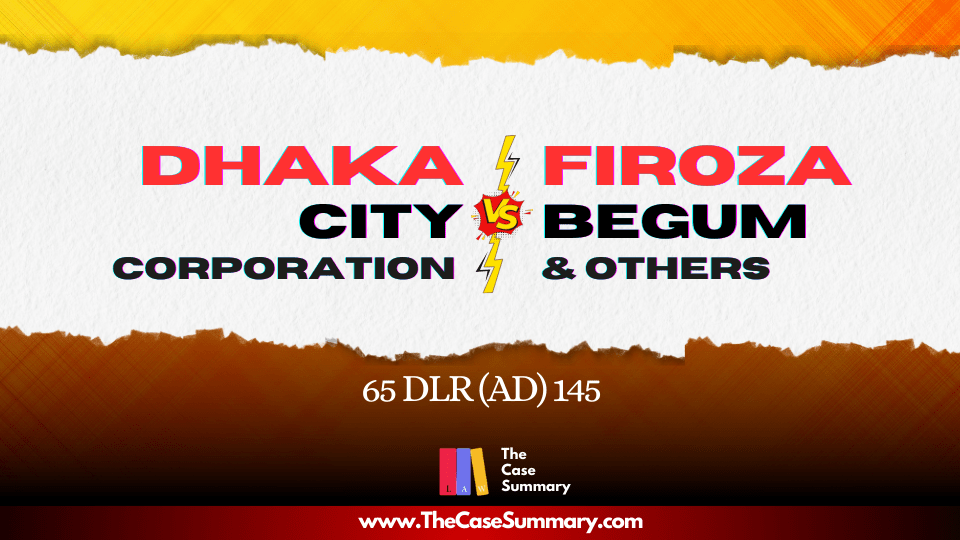Dr. Mohiuddin Farooque vs Bangladesh and others
Reference : 1997 17 BLD (AD) 1
Jurisdiction : Bangladesh
Plaintiff : Dr. Mohiuddin Farooque
Defendant : Government of the People’s Republic of Bangladesh
Facts :
The two severe floods of 1987 and 1988 in Bangladesh aroused national and international concern. In July 1989, in Washington, D.C., a meeting of the Government of Bangladesh and some donors was held, and it was agreed that an action plan would be undertaken as a first step for a long-term flood control program in Bangladesh. On 11 December, 1989, a document entitled “Bangladesh Action Plan for Flood Control” was introduced before the meeting of the foreign donors in London, and the “Flood Action Plan”, hereinafter referred to as “FAP” was born.
The ‘FAP-20’ project was being implemented in Tangail Sadar. “FAP-20” was likely to adversely affect and uproot about 3 lacs of people within the project area, and the extent of adverse impact outside the project area may encompass more than a million human lives and the environment.
Dr. Mohiuddin Farooque, who was the Secretary General of the “Bangladesh Environmental Lawyers Association” at that time, sued under Article 102 of the Constitution against the relevant authority, calling in question the activities and implementation of “FAP-20”.
Issues :
1. Whether Mohiuddin Farooque had locus standi or not?
2. Who is an “aggrieved person“?
Decisions :
Mohiuddin Farooque sued under Article 102 of the Constitution before the High Court Division. However, the court called in question the locus standi of Mohiuddin Farooque. The High Court Division refused to entertain it on the grounds of Locus Standi. Thus, the Court summarily dismissed the case. Afterwards, this case came to the Appellate Division. The Appellate Division gave a landmark judgment. AD liberalized the expression ❝person aggrieved,❞ thus:
In para no. 23, it was contended by Farooque that ❝absolute trust and faith in the Almighty Allah necessarily mean the duty to protect His creation and environment.❞ The appellant is aggrieved because Allah’s creations and environment are in mortal danger of extinction and degradation. To emphasize his argument, he focused on the preamble of our constitution. Mustafa Kamal J. endorsed the view to liberalize the expression ❝person aggrieved.❞
In para no. 42, his lordship Mustafa Kamal J held that interpreting the word ❝any person aggrieved,❞ meaning exclusively individuals, will be a stand taken against the Constitution.
In para no. 47 of this judgment, Justice held that if he (a person) espouses a public cause involving public wrong or public injury, he needs not be personally affected.
In the Constitution, nowhere the expression aggrieved person has been defined. As a result, it was difficult to justify the term. Before the liberal interpretation of the phrase in the Berubari case, the Supreme Court was reluctant to entertain pro bono publico (Public Interest Litigation). It has become more effective after the Appellate Division liberalized the term ❝person aggrieved❞ in this case. In this case, environment was covered to enable a person to file a PIL.
In para. 97, it stated, ❝In the writ petition, BELA is concerned with the protection of the people of this country from the ill-effects of environmental hazards and ecological imbalance. It has genuine interest in seeing that the law is enforced and the people likely to be affected by the proposed project are saved. This interest is sufficient enough to bring the appellant within the meaning of the expression ❝person aggrieved.❞ The appellant should be given locus standi to maintain the writ petition on their behalf.❞
And thus, it has made a revolutionary change in our legal system.
Relevant Law :
- Constitution of the People’s Republic of Bangladesh
- Article : 102
Author :
1. Farah Arifin
Note : The Case Summary is a platform by the law students, for the law students. We aim to summarize the facts and decisions of various important cases in both Bangla and English with utmost caution. However, this platform is in no way a replacement for going through the complete judgements by the law students and we discourage any learner from relying on case summaries alone. Thank you



